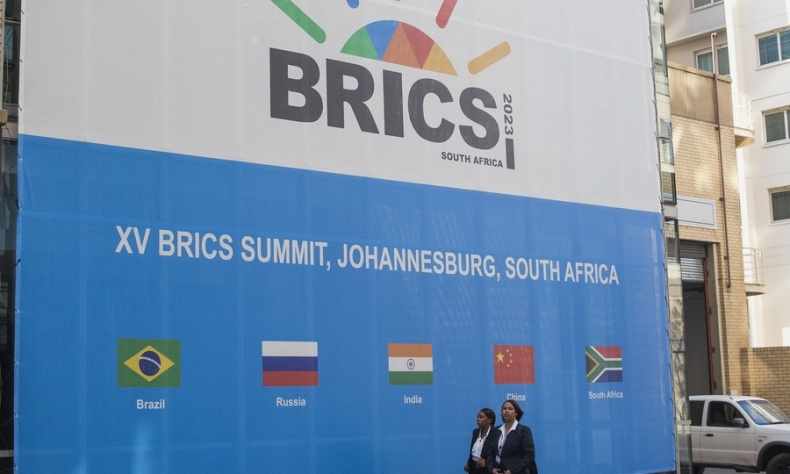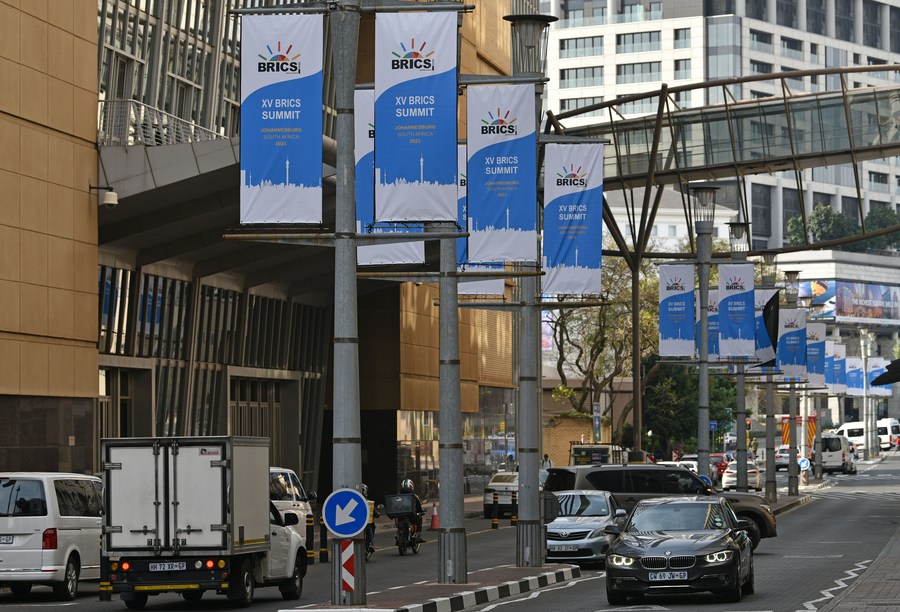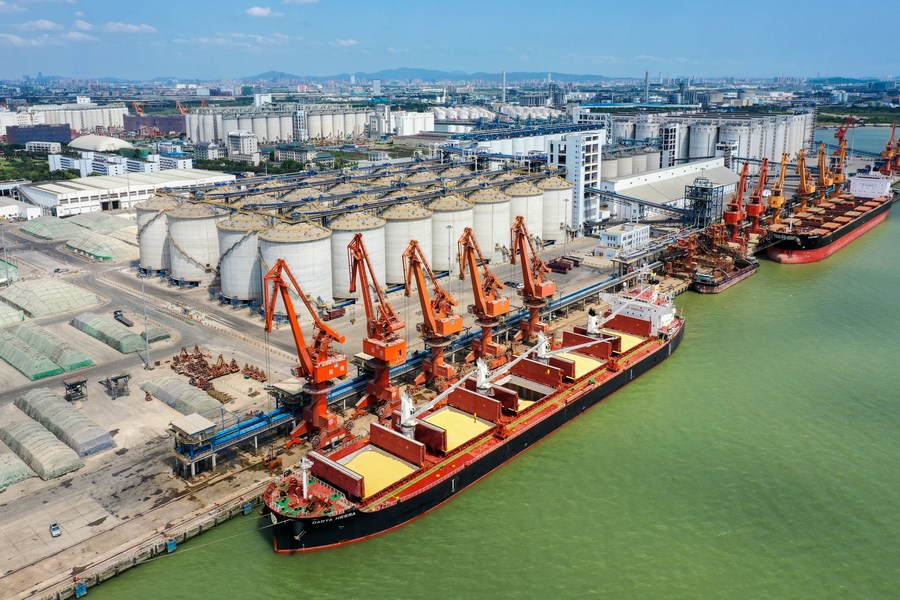Championing a New Multilateral World Order

BRICS, by harnessing its collective strengths and leveraging common interests, continues to challenge the unfair global dominance of traditional powers. It seeks to promote multipolarity and a world that does not marginalize anyone.
In the ever-evolving and fluid geopolitical landscape, the rise of emerging markets and developing countries over the past three decades has been a transformative force in reshaping the dynamics of the international order. This rise of the Global South can be traced back to the economic and political changes that took place in the 1990s. In the aftermath of the Cold War, market-oriented reforms became the prevailing trend across the world. These changes unlocked the Global South’s immense growth potential and positioned it as a significant geopolitical and economic force globally.
It is within this context that a number of minilateral groupings were formed, leading to new alliances and partnerships. The G20 emerged as the preeminent global financial and economic forum, bringing together the leading economies of the Global South and North. However, as the G7 continued to champion the interests of the West, the concerns and challenges pertaining to the developing world continued to be ignored. It is within this context that Brazil, Russia, India and China (BRIC) came together as a collective to champion the interests of the Global South and called for real and meaningful reform of the global multilateral architecture.
The first formal BRIC Summit took place in Russia in 2009. South Africa was invited by China to join in 2010, resulting in the acronym being changed to “BRICS.” South Africa attended the BRICS Summit in 2011 in Sanya, Hainan Province, under China’s chairship. South Africa was invited to join BRICS precisely to give greater impetus to the spirit of BRICS as a powerful voice and champion of the Global South. South Africa’s membership of BRICS also added the voice of Africa to BRICS, ensuring that Africa’s interests were also at the center of the BRICS agenda.

Inclusive approach
BRICS has as its fundamental principle an inclusive approach in working toward creating a global order underpinned by multipolarity and inclusiveness. It upholds the purposes and principles of the UN Charter as well as international law.
Since the establishment of the UN and the Bretton Woods Institutions following the end of World War II, the world has continued to be dominated by the same Western powers that were at the forefront of the creation of these institutions. However, the world of today is vastly different from when these institutions were established and they now no longer reflect the current global realities. Despite repeated calls for the reform of the global political, economic and financial institutions, there has been no movement to make these organizations inclusive and representative of the current global order. UN Secretary General António Guterres recently noted that the UN Security Council and Bretton Woods Institutions are in need of real reform. He further indicated that these institutions are unrepresentative, outdated and irrelevant. These are views that echo the position of BRICS over the past decade and a half.
Thus, the establishment of BRICS provided an important platform to consolidate its members’ collective political, economic and financial influence to champion the creation of a more equitable and inclusive political, economic and financial order. BRICS, by harnessing its collective strengths and leveraging common interests, continues to challenge the unfair global dominance of traditional powers. It seeks to promote multipolarity and a world that does not marginalize anyone. This is not currently the situation due to the unwillingness of the West to engage in meaningful and real reform of the global governance architecture.
It is within this historical and current geopolitical context that South Africa hosted the BRICS Summit in 2023. The theme, BRICS and Africa: Partnership for Mutually Accelerated Growth, Sustainable Development and Inclusive Multilateralism, emphasizes and reflects the vision of the continued shared values of BRICS as a partnership of leading emerging markets and developing countries. South Africa’s chairship will continue the momentum toward inclusive global economic growth, sustainable development, and inclusion of the Global South in a more fair and just global governance architecture.

Importance of collaboration
The theme and deliverables highlight the increasing importance of collaboration, cooperation, convergence and functional coherence among BRICS, the African continent and the Global South. South Africa will aim to consolidate and expand existing collaborations, with a focus on areas such as fairer trade, more inclusive economic growth, infrastructure development, information and communication technology and sustainable development, as well as people-to-people exchanges. By fostering more inclusive economic integration and inclusive multilateralism, the intention is to create an enabling environment for more shared and inclusive growth and prosperity for BRICS and the Global South.
In addition, BRICS will also enhance avenues for South-South cooperation, innovation and technology transfer, thus addressing the developmental challenges faced by BRICS, Africa and other developing countries.
To strengthen the group further, BRICS will continue to deepen institutional mechanisms, enhance cooperation in diverse sectors, and promote people-to-people exchanges, expanding collaboration beyond traditional areas and embracing emerging fields such as the digital economy, renewable energy, and climate action. It will continue to promote the New Development Bank as a major multilateral development bank committed to infrastructure and sustainable development projects.
The 2023 BRICS Summit held in Johannesburg, South Africa, from August 22 to 24, provided a pivotal moment for BRICS to strengthen global governance partnerships, foster inclusive growth, and champion sustainable development. South Africa’s chairship also provides it with an opportunity to showcase BRICS commitment to multilateralism and advancing the interests of Africa and the Global South.
The summit saw the BRICS countries interact with the invited African countries as well as other Global South countries that represent the major Global South regional bodies. This is an important and seminal opportunity for BRICS and the Global South to address collectively the current geopolitical, security, economic and financial challenges.
BRICS must seize the moment and provide leadership by fostering global cooperation, peace and stability, reinforced through multilateralism with a reformed UN at the center.
The author is ambassador-at-large for Asia and BRICS at South Africa’s Department of International Relations and Cooperation.
 Facebook
Facebook
 Twitter
Twitter
 Linkedin
Linkedin
 Google +
Google +










